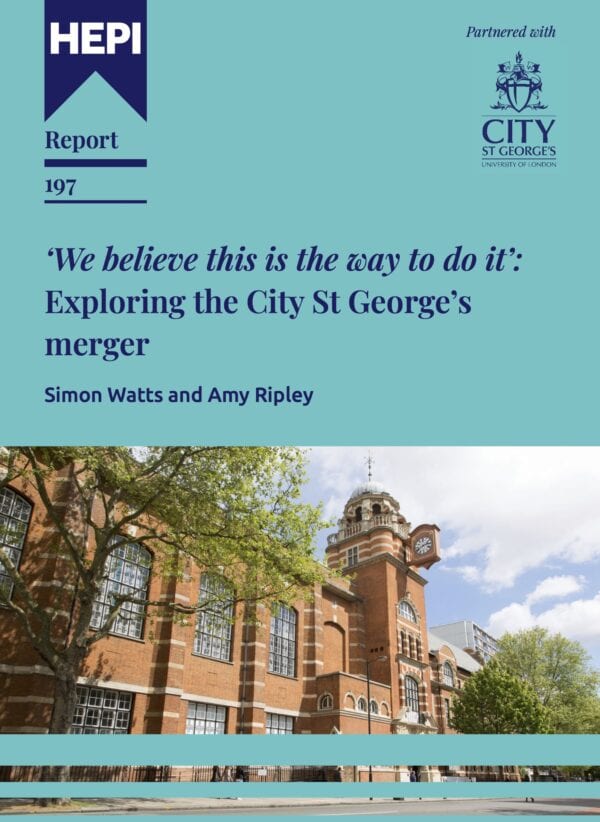Who’s listening to the TNE student experience?
This blog is co-authored by David Carter (University of Reading), Tabetha Newman (Timmus Research) and Elizabeth Newall (Jisc).
David’s HEPI report on The student experience of transnational education was published in December.
Tabetha’s Jisc report on Digital challenges associated with the effective delivery of transnational education was published this month.
Transnational education (TNE) is an increasingly prominent feature in the UK higher education landscape. The sector now has more than 600,000 TNE students, who study outside the UK for awards made by UK providers. Growth in the number and diversity of TNE students shows no sign of stopping. This has implications for institutional strategy and for the UK’s global reputation. At the same time, it asks us to consider the quality of the TNE student experience.
The 2024 HEPI report recommends practical ways to increase public understanding of the TNE student experience. These include: wider engagement with the Quality Assurance Agency’s Quality Enhancement of Transnational Education (QE-TNE) scheme; and greater use of external surveys of TNE students. Jisc’s new report focuses on the digital experience of TNE students and staff.
Things rarely stay still for very long in the TNE world. What has changed in the six months between the two reports, and what can we learn now?
- In April, the Higher Education Statistics Agency (part of Jisc) published the latest aggregate offshore record. There were 621,065 UK TNE students in 2022-23, an increase of 8 per cent on the previous year. The total number of TNE students has grown every year since the current record was established in 2019-20. This trend looks set to continue, with India attracting particular recent attention. The government’s revised International Education Strategy is expected to have a renewed emphasis on TNE growth.
- Meanwhile, at home, higher education providers face financial headwinds, combined with a potentially unfavourable policy environment for international students in the UK. Is TNE part of the answer? TNE projects are notoriously complex and have long lead-in times, making the direct impact on a provider’s bottom line hard to gauge. But many providers recognise the long-term strategic value of TNE projects, and are ready to invest even at a time of financial uncertainty for the sector.
- April also saw a change of mind by two regulators: the Office for Students in England, and Medr in Wales. They jointly paused the development of TNE data sets based on individual student records, a requirement that would have been excessively burdensome on providers. Instead, there will be an expanded aggregate offshore record, such as was already planned in Scotland and Northern Ireland. In the absence of more granular data, it is all the more important that we find ways to understand the quality of the TNE student experience.
One aim of the HEPI report was to give a higher profile to TNE students in the policy agenda. This month’s Jisc report maintains the profile of TNE students by summarising the known digital challenges to global educational delivery from the perspective of 21 UK higher education providers. Digital is central to the success of all TNE students: whether learning in classrooms, dialling in or in asynchronous online modes of study. In every case, technology is woven throughout curriculum delivery and beyond. Jisc found that:
- In aiming to deliver an equitable learning experience, we cannot assume that connectivity, digital resource access and prior digital experience in host countries is the same as in the UK
- Intermittent access to the internet is common in many countries, often due to disrupted electricity supply. Technology infrastructure is especially vulnerable during times of extreme weather, natural disaster, civil unrest or war
- Challenges associated with accessing digital resources and learning materials are common. They can be caused by software or publisher licensing restrictions, export control laws and/or host country restrictions
- Significant fees can be charged for TNE student access to software or e-publications. This reflects how publishers define a student as ‘belonging’ to an institution
- There are cultural differences in expectations related to how digital is used to support learning, teaching and assessment
- Cultural differences also create challenges in understanding and adapting to UK academic norms associated with academic integrity, copyright, plagiarism, effective use of AI and assessment rubric
- The digital skills and capabilities expected of HE students and staff can differ between countries and cultures
The report also summarises how Jisc, Universities UK International, British Council and The Quality Assurance Agency for Higher Education are working together to support the sector to better understand the quality of the TNE student experience, and so support effective and successful global educational delivery.
This month’s Jisc report is the first of two on the TNE student and staff digital experience. The second report will summarise the views of over 4,800 TNE students and 400 staff, across 50 instances of global delivery. It will be published in October 2025 and launched at the Universities UK International TNE conference.







Comments
Paul Wiltshire says:
This isn’t about Education. The transaction is about overseas students buying the UK Uni brand to put on their CV’s. And as UK Uni’s are profit and growth seeking, then of course they are willing to sell their brand to whomever will buy it.
Reply
Add comment